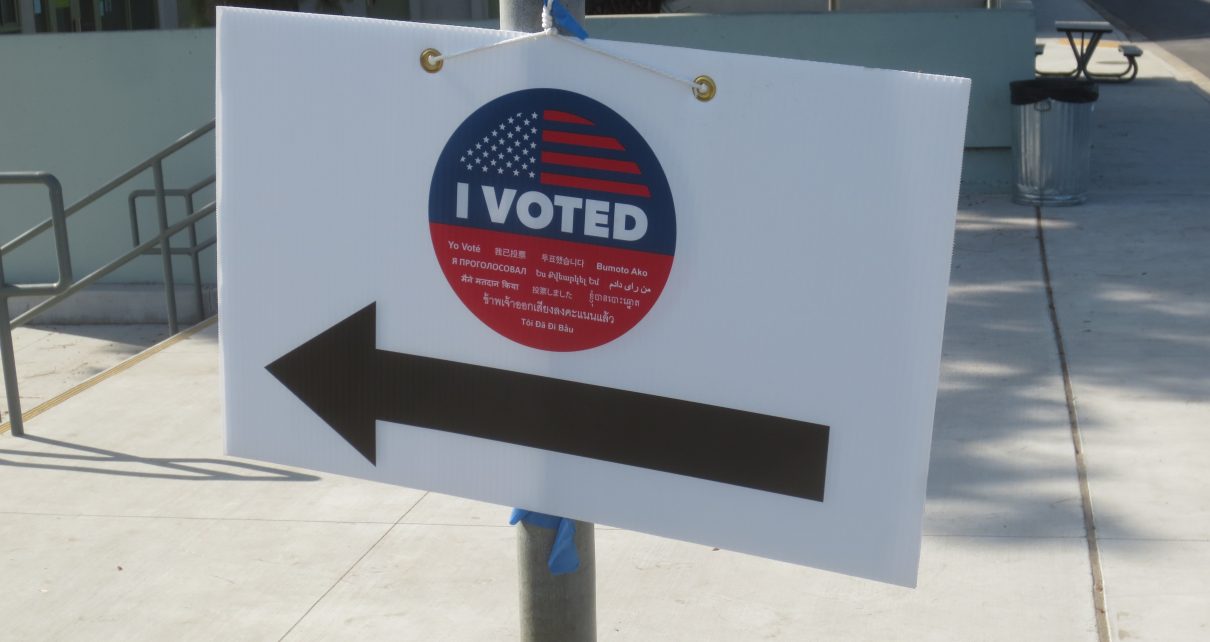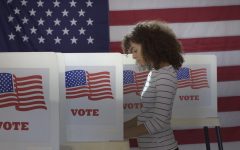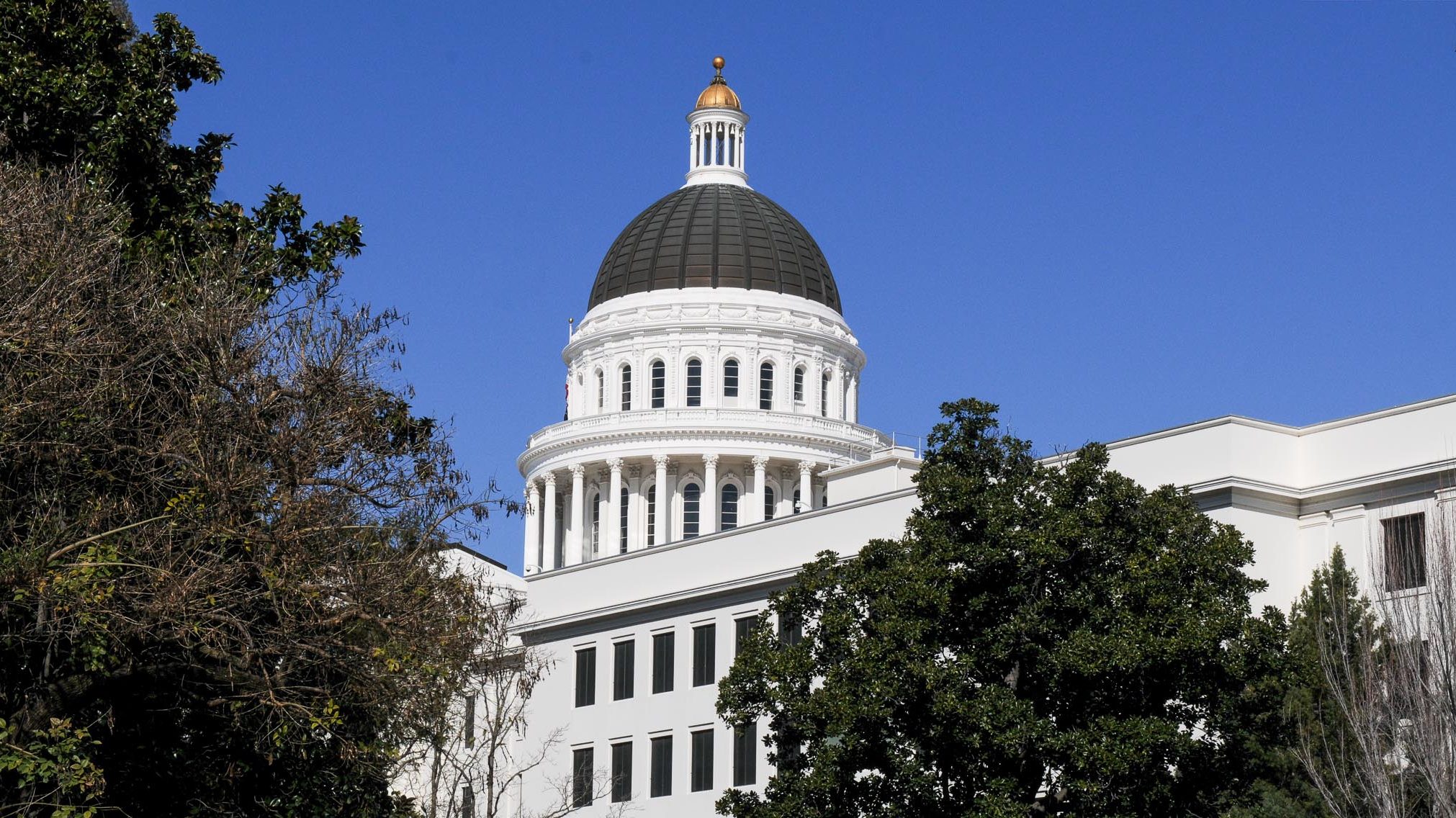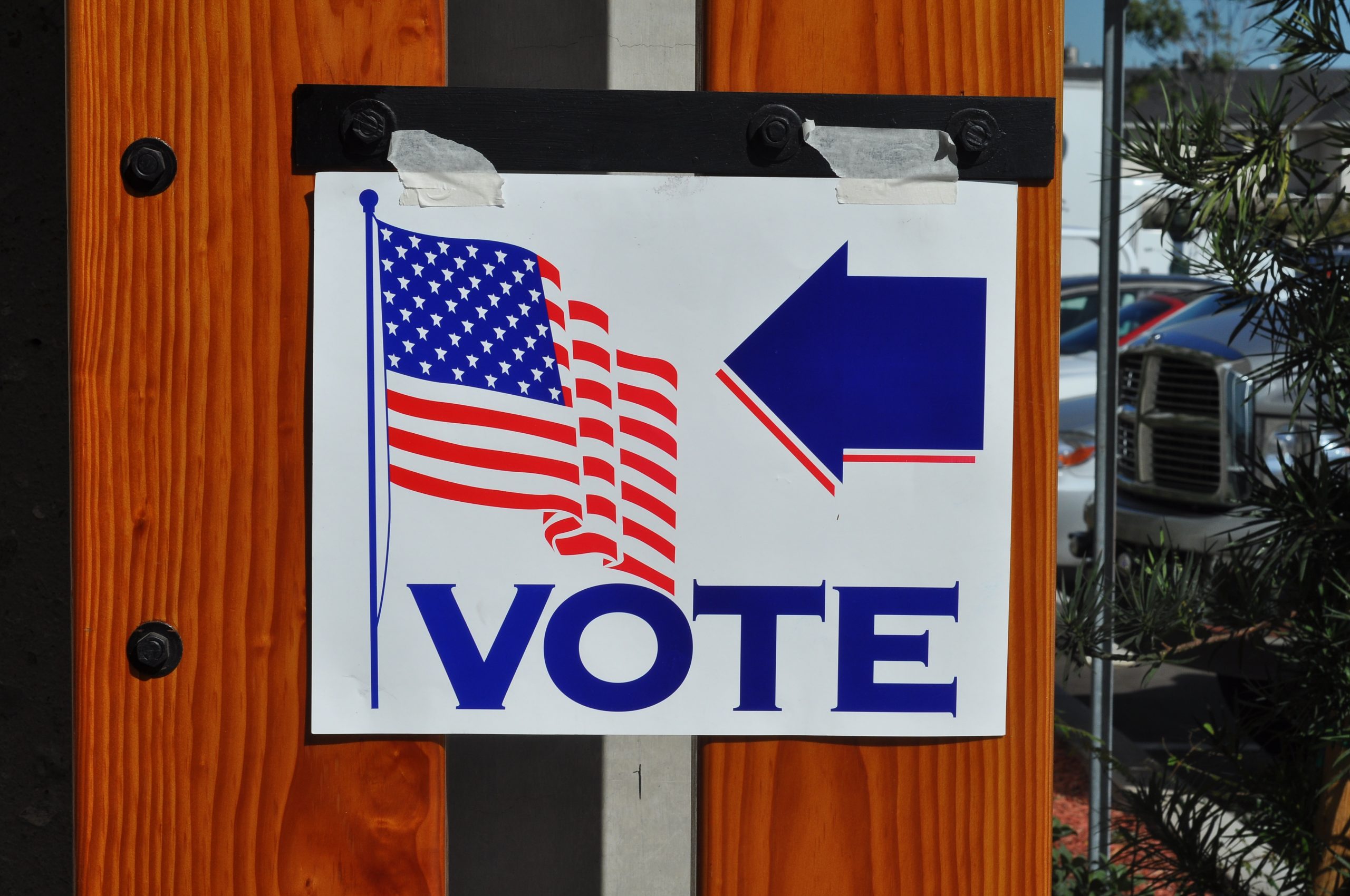
Voting sign in Pasadena, CA November 3, 2020 (Photo: Evan Symon for the California Globe)
Challenging a Voter in California
A person offering to vote may be orally challenged within the polling place only by a member of the precinct board
By Chris Micheli, January 29, 2022 7:37 am
California’s Elections Code allows for challenging a voter in Division 14 dealing with election day procedures, Chapter 3, dealing with procedures at polls, Article 3. Article 3 contains Sections 14240 to 14253 and was enacted in 1994.
Section 14240 provides that a person offering to vote may be orally challenged within the polling place only by a member of the precinct board upon any or all of the following grounds:
- That the voter is not the person whose name appears on the roster.
- That the voter is not a resident of the precinct, or in an election conducted using a voter center, not a resident of the county.
- That the voter is not a citizen of the United States.
- That the voter has voted in that election.
Any other person is prohibited from challenging or questioning any voter concerning the voter’s qualifications to vote.
Section 14241 provides that a piece of mailed matter returned undelivered by the post office must not be accepted or used as evidence upon which to initiate a challenge as to residency by any member of the precinct board unless other evidence or testimony is also presented.
Section 14242 provides that a ground for challenges does not apply to any person duly registered as a voter in any precinct in California and moving from that precinct within 14 days prior to an election.
Section 14243 specifies that, if the challenge is on the ground that the person seeking to vote is not the person whose name appears on the roster, a member of the precinct board is required to tender the following oath: “You do swear (or affirm) that you are the person whose name is entered on the roster.”
Section 14244 provides that, if the challenge is on the ground that the person seeking to vote is not a resident of the precinct, or in an election conducted using a voter center, not a resident of the county, the person challenged must be sworn to answer questions, and after having been sworn, a member of the precinct board is required to ask that person: “Are you a resident of this precinct?” or in an election conducted using a voter center, “Are you a resident of the county?”; If the answer to the question is “Yes,” without significant qualification, no other questions are allowed to be asked.
Section 14245 states, if the challenge is on the ground that the person challenged has already cast a ballot for this election, a member of the precinct board is required to tender to the person challenged this oath: “You do swear (or affirm) that you have not previously voted in this election, either by vote by mail ballot or at a polling place.”
Section 14246 provides that, if the challenge is on the ground either that the person challenged is not the person whose name appears on the roster, or that he or she has voted that day, the challenge must be determined in favor of the person challenged if that person takes the oath set forth in statute.
Section 14247 specifies that challenges of voters that they are not residents of the precinct or citizens of the United States must be tried and determined by the precinct board at the time of the challenge. The precinct board may, at its discretion, also request any other person, present in the polling place to be sworn and answer questions, whom the board believes may have knowledge or information concerning the facts of the challenge.
Section 14248 requires, before administering an oath to a person regarding his or her place of residence, a member of the precinct board must read to the person challenged certain specified rules.
Section 14249 provides that, if any person challenged refuses to take the oaths tendered, or refuses to be sworn and to answer the questions concerning the matter of residence, that person is not be allowed to vote. Section 14250 states that the precinct board, in determining the place of residence of any person, is governed by specified statutes. Section 14251 states that any doubt in the interpretation of the law must be resolved in favor of the challenged voter.
Section 14252 requires the precinct board to compile a list showing all of the following:
- The name and address of each person challenged.
- The name, address, and any other identification as a voter, of each person offering information concerning any person’s qualifications to vote, or testifying together with the name and address and any other identification of the person about whom the information or testimony is given.
- The grounds of each challenge.
- The determination of the board upon the challenge, together with any written evidence pertaining thereto.
- If evidence has been presented to the board requesting challenges, the evidence must be returned to the elections official responsible for the conduct of the election.
Section 14253 provides that, in the event that the precinct board determines that persistent challenging of voters is resulting in a delay of voting sufficient to cause voters to forego voting because of insufficient time or for fear of unwarranted intimidation, the board is required to discontinue all challenges, and so note on the roster.
- Designating ‘Spot’ Bills in the California Legislature - March 2, 2026
- Regulatory Powers of the Fish and Game Commission - March 2, 2026
- Committee Versus Floor Lobbying - March 1, 2026





Well, thank you Chris. This adds a new dimension and potential to challenge the ‘you’ve already voted’, that I’m guessing many did not know.
Simple solution: All voters must have a valid CA ID-period. Or they get “Challenged”.
You bet. If u don’t have one, get one.
So we can now truck in millions of Trump voters from Utah to sway the next election with fear of bring challenged. It works boyh ways, Democrats.